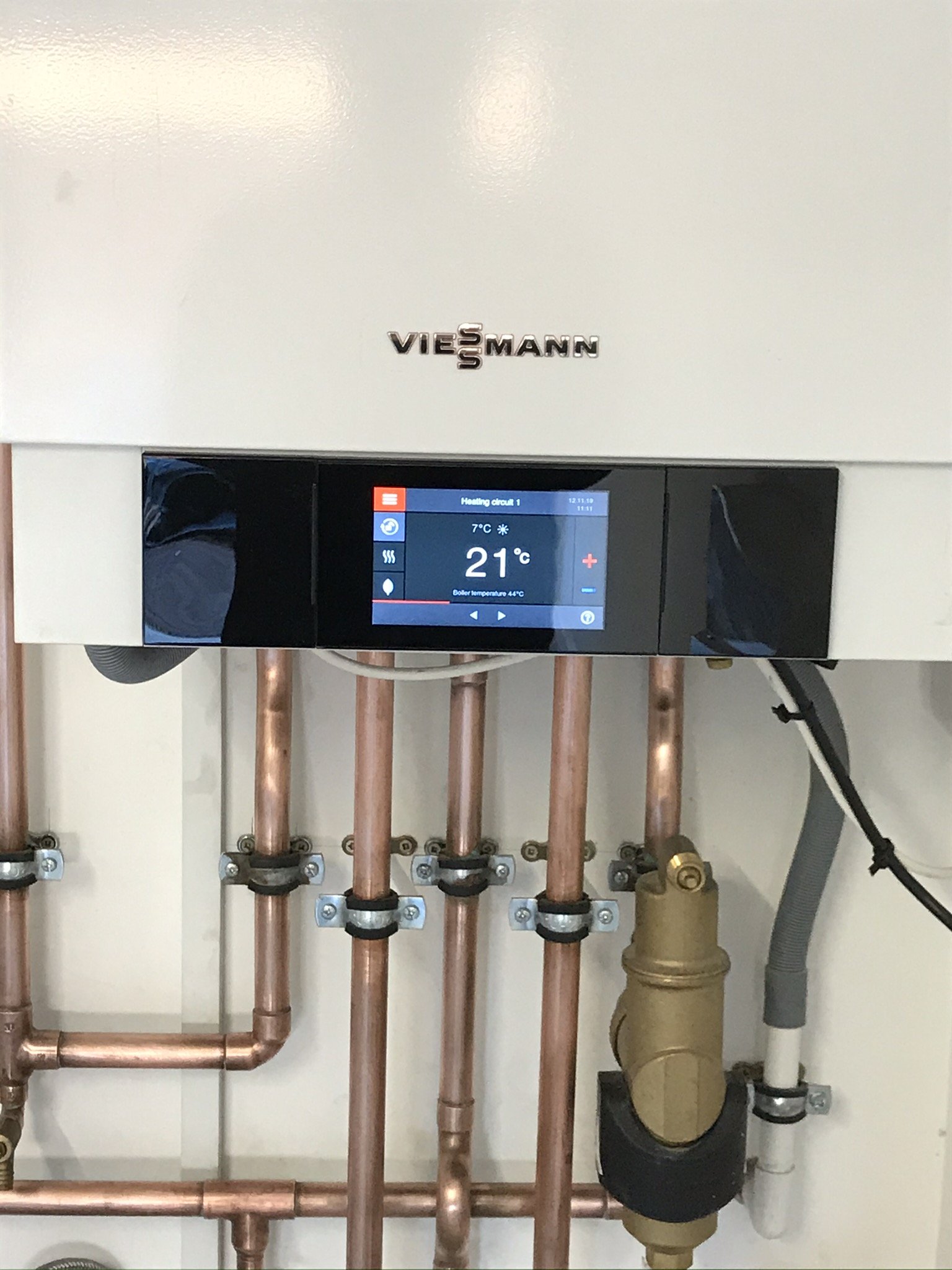Choosing a new boiler
6 things to consider when choosing a new boiler
The temperature has suddenly dropped and it's that time of year when the heating goes on and you discover there's a problem with the boiler.
It's just not working how it should.
Or maybe one of your rads isn't getting hot.
Perhaps the overflow won't stop or you've lost system pressure.
Maybe it's just a noisy old thing that's seen better days.
If you've had your boiler for more than 15 years the chances are you're getting ready for a new one. If you've never had it serviced then it should probably be condemned!
Constant repairs to your old boiler could prove to be expensive and it may be more cost effective to invest in a new, more energy-efficient appliance. The decision to install a new boiler shouldn't be taken lightly as, let's be honest, it's not cheap, however it could save you £100’s in the long run. Apart from your requirements in terms of size of property, number of residents and how much water you all use, there are a host of other aspects to think about.
The good news is that the latest boilers are more advanced than they've ever been.
They use less fuel making them economical to run.
They're cleaner and more compact
They’re quieter and much more reliable.
The trouble is where do you start? There's so much to consider.
1. Gas, LPG, Oil, Electric?
The first thing to consider is whether or not your want to keep with your current energy provision. The majority of boilers currently installed throughout the UK are run on mains gas. However if you're living in a rural area, chances are you're either running on LPG (Liquid Petroleum Gas), oil or electric.
It's quite difficult to compare the actual costs of each energy source as they're all measured in different units: litres, therms, BTU, kWh etc but Nottingham Energy Partnership offer a handy and interesting comparison table - check it out: https://nottenergy.com/resources/energy-cost-comparison/
The figure you need to be looking out for is the price per kWh but if you're concerned about the planet then LPG is better for the environment than oil. However if you really want to reduce your carbon footprint then air source heat pumps are the way forward.
Overground LPG tanks.
2. Where to position your boiler?
The boiler doesn't necessarily have to go in the same place as the old one. The latest technology means that new boilers these days are more compact and reliable so can be installed anywhere in the house, including the garage.
If you have the headroom, new heating systems can go in the loft, but you'll need good access to allow for servicing and maintenance.
The utility room is a favourite place of course or, for smaller properties, the boiler can be located in the kitchen or bathroom. You can even put it in the garage.
3. Which type of boiler is best?
Next is to decide on the best type of boiler for your property. There are essentially three types of heating systems:
System Boilers don't need a tank in the loft. You will still need a water cylinder to store the hot water but there is no problem with running more than one tap for hot water so long as you have enough stored in your cylinder. They are very economical to run and the built-in heating and hot water components make it quicker, neater and easier to install. They're ideal for homes with more than one bathroom or more than two residents and they're also compatible with solar water heating systems.
Combination Boilers are the most popular type of heating systems in the UK. They're cheap to install and are more suitable if you have limited space as they don't require a tank, a pump nor as much pipework. They provide heating and hot water straight from the boiler and they're available for gas, oil or electric supplies. They're not so suitable for properties with more than one bathroom as hot water can only be provided to one tap at a time.
Conventional or Regular Boilers, known as open-vent, traditional or regular boilers, require a cold water tank up in the loft together with a tank, or cylinder, that maintains the central heating system's water level. They're more suited to homes that already have a traditional heating and hot water system. They need plenty of storage space and are really becoming a thing of the past.
4. What's a condensing boiler?
All new boilers that are installed must now, by law, have condensing technology, so you can effectively have condensing system boilers, condensing combi boilers and condensing conventional boilers.
Condensing boilers are up to 99% efficient, whilst non-condensing are only up to 78% efficient and a lot more costly to run.
They run at a lower temperature than non-condensing boilers and the combustion gases given off are recycled saving around 30% of the heat that would otherwise be wasted. They're great for the planet.
So, if you're still running your central heating with a non-condensing boiler it might be time to think about changing.
5. Which is the best brand of boiler?
There are lots on the market and they all have their own merits. Boilers from Ideal are a good cheaper option but the main manufacturer that I can highly recommend above all others is Viessmann. I'm an approved installer and this company offer the ultimate in efficiency and reliability.
They have been awarded Which? Best Buy status for four out of five years for six of their gas boilers from their Vitodens range. Which? conducted a survey in May 2018 where they questioned just under 12,000 boiler owners and 166 heating engineers based on "Boiler brands you can trust".
Viessmann's Vitodens range offers four different boilers to suit any size property. Their simple but modern and streamline designs sit well in any style property. They all come with easy to control LCD displays, have the option of smart controls which you can operate from your mobile phone, have energy rating A (the standard runs from A-G) and all come with 7-10 years warranty depending on the model.
To read more about them head to the Viessmann website.
6. Which kWh size boiler do I need?
Now we're getting technical! This really depends on the size of your house, number of rooms, the cubic size of each room, the demand on water in your household and a host of other elements to consider. You need an expert to work this out for you properly to ensure you're not wasting your money on something you don't need and to have peace of mind that you're making the right decision.
So, if you're looking for a qualified heating engineer in Chichester or surrounding areas to install your new boiler, why not give me a call?
Adam Carter
07717 572957





